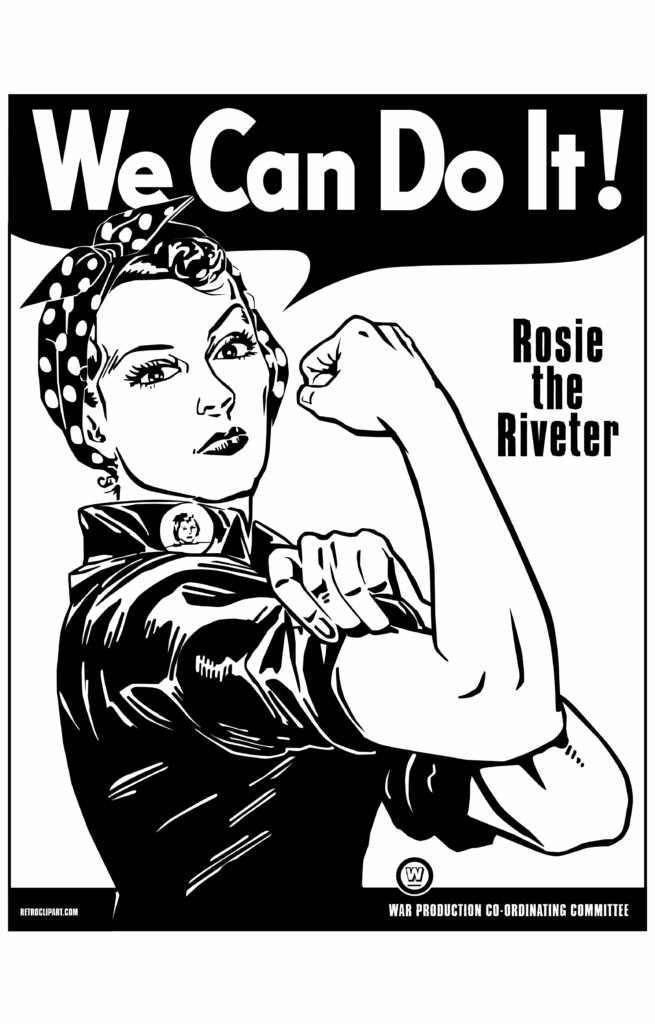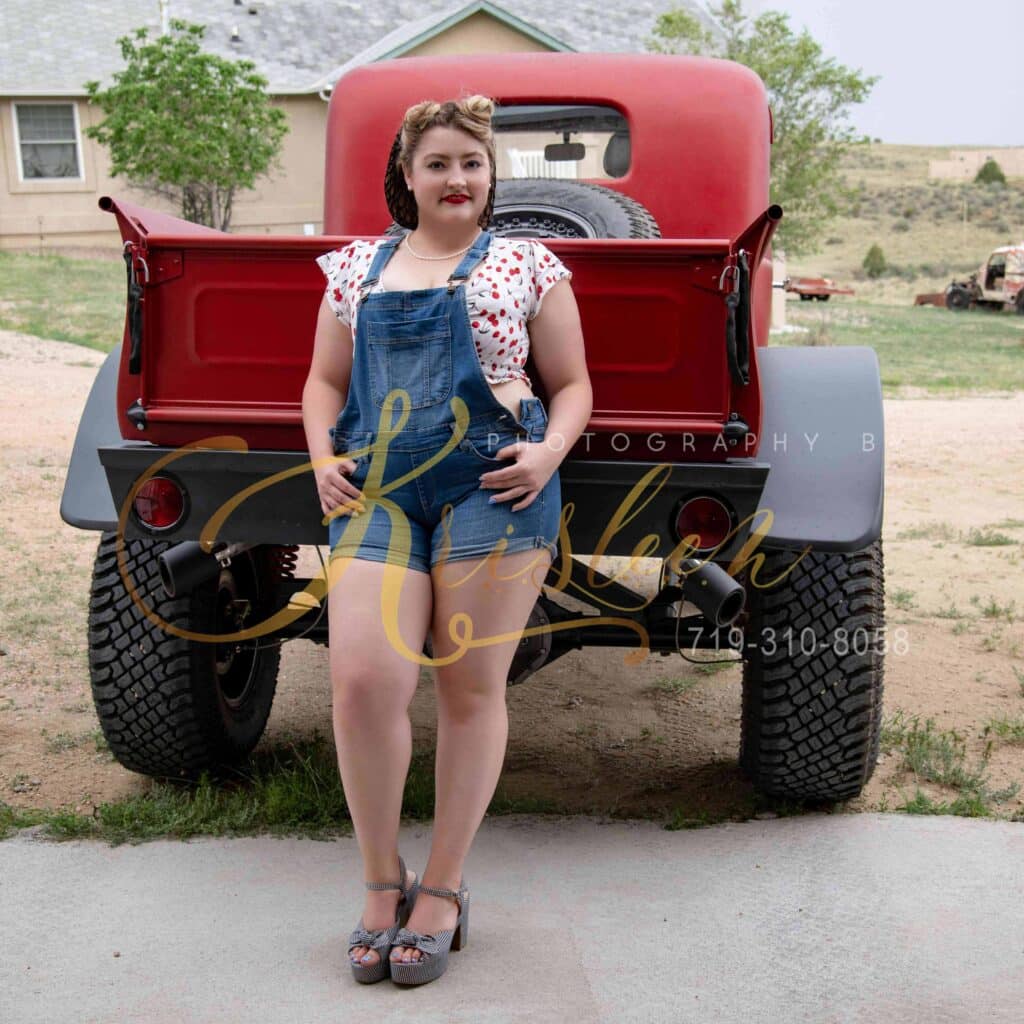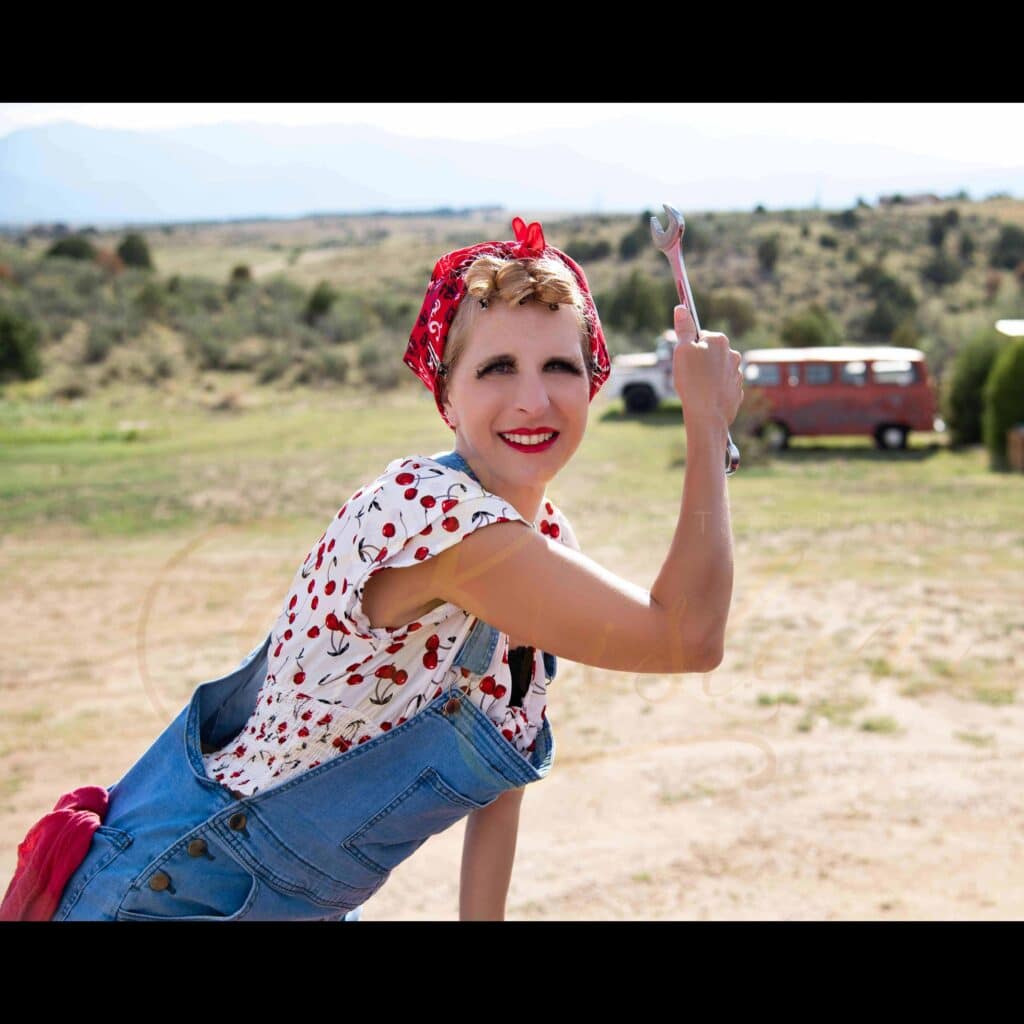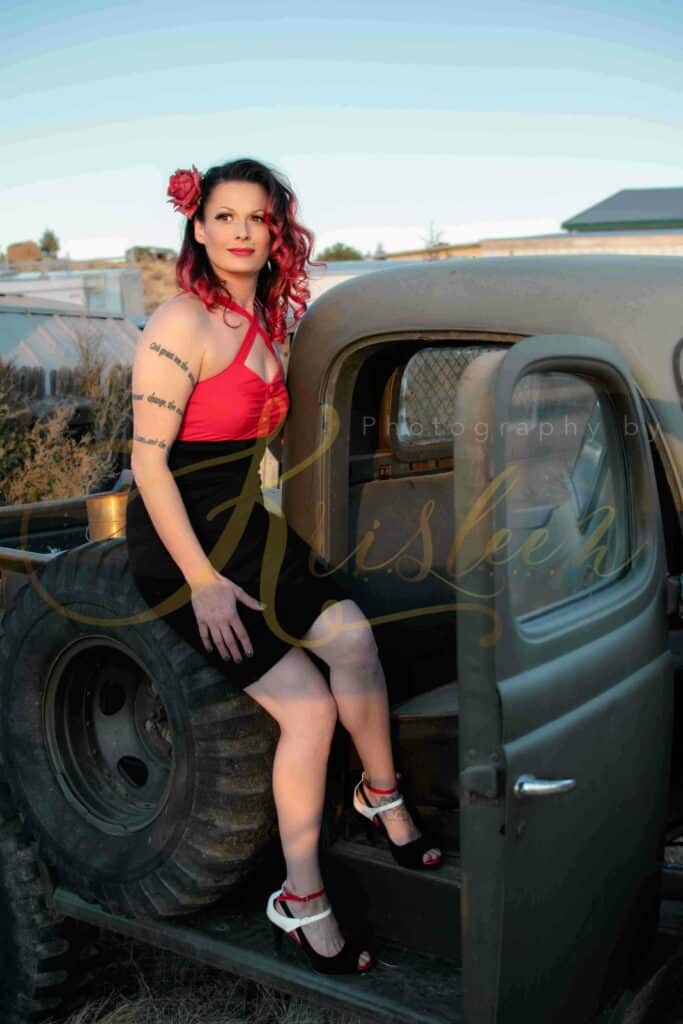Rosie the Riveter, with her iconic “We Can Do It!” slogan, became a powerful symbol of female empowerment during the war. The image, created by artist J. Howard Miller, represented the millions of women who joined the workforce to support the war effort. Rosie’s image adorned posters and propaganda, encouraging women to take on jobs traditionally held by men. These women not only became essential to the war machine but also contributed significantly to the societal shift in gender roles.

The pin-up culture during this era expanded to celebrate the strength and resilience of these working women. Pin-up girls adorned the walls of factories, boosting morale and fostering a sense of camaraderie among the factory girls. The imagery evolved to portray women not just as objects of beauty but as powerful contributors to the war effort. These pin-ups depicted factory girls in work attire, showcasing a new definition of femininity that embraced strength, determination, and capability.

The factory girls themselves became the unsung heroes of the war, proving that women were more than capable of taking on roles traditionally reserved for men. The legacy of Rosie the Riveter endures as a symbol of female empowerment, breaking down barriers and inspiring future generations of women to pursue their ambitions.

As we reflect on this chapter of pin-up history, it’s crucial to acknowledge the enduring impact of Rosie the Riveter and the factory girls. Their contributions paved the way for increased gender equality in the workplace and beyond. The pin-up art of this era, with its emphasis on strength and capability, played a significant role in challenging societal norms and reshaping perceptions of women’s roles.
In the contemporary landscape, the empowering spirit of pin-up art lives on through modern pin-up photography sessions. These sessions allow individuals to step into the shoes of iconic pin-up models, embracing the confidence, strength, and allure that defined the women of the WWII era. The love for modern pin-up photography sessions is a testament to the ongoing appreciation for the timeless charm and empowering ethos of pin-up culture. Whether capturing the elegance of the Vargas girl or channeling the strength of Rosie the Riveter, these sessions provide a platform for self-expression, body positivity, and the celebration of individuality.

As we continue our exploration of pin-up history, let’s honor the legacy of Rosie the Riveter and the factory girls who reshaped societal norms, leaving an indelible mark on the journey towards gender equality.
